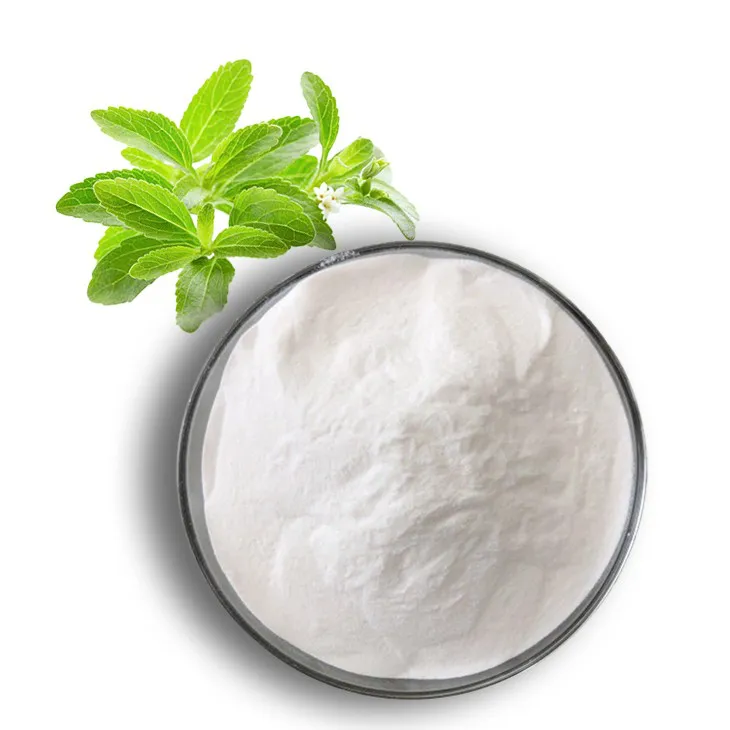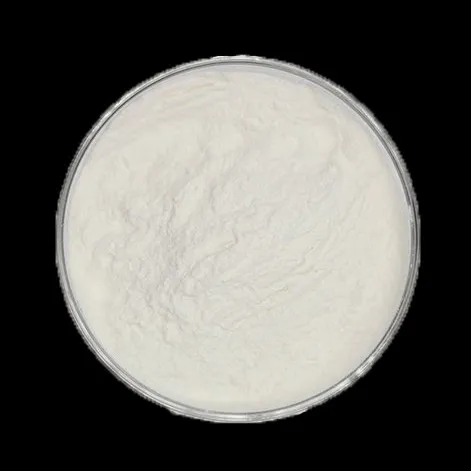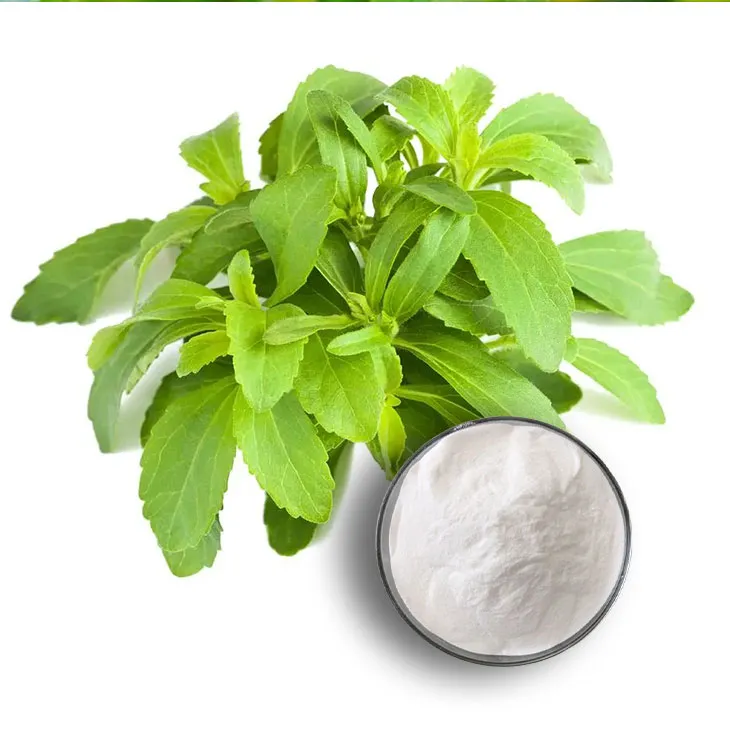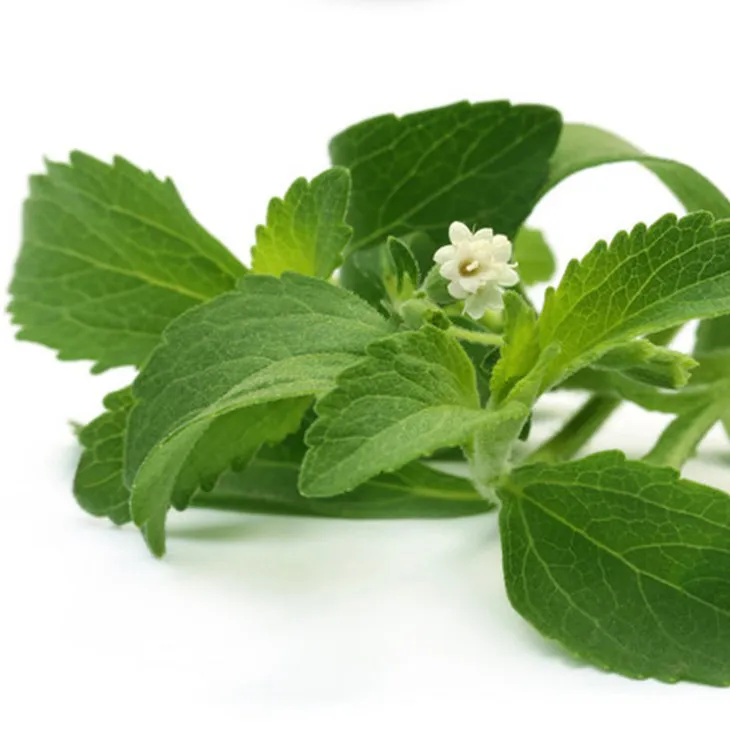- 0086-571-85302990
- sales@greenskybio.com
Understanding the Private Label of Stevia Extract: A Comprehensive Guide
2024-12-10

1. Introduction
The food and beverage industry has witnessed a significant shift in recent years towards the use of natural sweeteners. Among these, Stevia Extract has emerged as a popular choice. A private label of Stevia Extract allows companies to create their own branded products with unique selling points. This comprehensive guide aims to explore all aspects of Stevia Extract's private label, from its basic properties to regulatory compliance and comparison with other sweeteners.

2. What is Stevia Extract?
Stevia extract is derived from the leaves of the Stevia rebaudiana plant, native to South America. It contains natural sweet compounds, mainly steviol glycosides, which are responsible for its intense sweetness. These glycosides are much sweeter than sucrose, with some variants being several hundred times sweeter.
For example, rebaudioside A, one of the main steviol glycosides in stevia extract, is about 200 - 400 times sweeter than table sugar. This means that only a small amount of stevia extract is needed to achieve the same level of sweetness as a larger quantity of traditional sweeteners.

3. Unique Properties of Stevia Extract
3.1. Low - Calorie and Zero - Glycemic Index
One of the most appealing aspects of stevia extract is its low - calorie nature. It provides sweetness without adding significant calories to the diet, making it an excellent choice for those watching their calorie intake. Additionally, stevia has a zero - glycemic index, which means it does not cause a spike in blood sugar levels. This property makes it suitable for diabetics and individuals following a low - glycemic diet.
3.2. Natural Origin
As mentioned earlier, stevia extract comes from a plant source. Consumers are increasingly interested in natural products, and stevia fits this trend. Its natural origin gives it an edge over artificial sweeteners in terms of consumer perception, as many people prefer to avoid synthetic chemicals in their food and beverages.
3.3. Stability in Different Conditions
Stevia extract is relatively stable under various processing and storage conditions. It can withstand heat, making it suitable for use in baked goods and hot beverages. It also has good shelf - stability, ensuring that products containing stevia maintain their sweetness over time.

4. Regulatory Aspects of Stevia Extract
Regulatory approval for stevia extract varies from country to country. In some regions, such as the United States, stevia has been approved as a Generally Recognized as Safe (GRAS) ingredient for use in food and beverages. However, different countries may have specific regulations regarding the purity levels, acceptable steviol glycoside content, and labeling requirements.
For example, in the European Union, stevia extract is approved for use, but there are strict limits on the amount of steviol glycosides that can be used in different food categories. Companies looking to develop private - label stevia - based products need to be well - aware of these regulatory differences to ensure compliance in all target markets.
Labeling requirements are also an important part of the regulatory framework. Labels must accurately disclose the presence of stevia extract, often using the correct scientific names of the steviol glycosides present. This transparency helps consumers make informed choices about the products they purchase.

5. Comparison with Other Sweeteners
5.1. Artificial Sweeteners
Compared to artificial sweeteners like aspartame and saccharin, stevia extract has the advantage of being natural. Artificial sweeteners have faced some controversy over the years, with concerns about potential health risks. While regulatory bodies generally consider them safe for consumption within approved limits, consumer perception remains a factor. Stevia, on the other hand, is seen as a more "clean - label" option.
In terms of taste, stevia extract may have a different flavor profile compared to artificial sweeteners. Some people find the aftertaste of artificial sweeteners to be unpleasant, while stevia has a more plant - like, slightly bitter undertone which can be managed through proper formulation in products.
5.2. Sugar and Other Natural Sweeteners
When compared to sugar, stevia extract is obviously much lower in calories. Sugar is a high - calorie ingredient that can contribute to obesity and related health problems if consumed in excess. Other natural sweeteners like honey and maple syrup also contain significant amounts of calories and sugars.
In contrast to these, stevia can provide a similar level of sweetness with a negligible calorie load. However, it's important to note that the taste of stevia is different from that of sugar, and some consumers may need time to adjust to the new flavor.
6. Developing a Private - Label Stevia - Based Product
6.1. Product Formulation
When formulating a product with stevia extract, it's crucial to consider the intensity of its sweetness. As mentioned earlier, stevia is much sweeter than sugar, so precise measurement and proper dilution are necessary. Companies may need to conduct taste - testing to find the optimal level of stevia use that balances sweetness and taste acceptability.
Additionally, to overcome the potential bitter aftertaste of stevia, other ingredients can be added. For example, adding a small amount of natural flavors or acids can help mask the bitterness and improve the overall flavor profile of the product.
6.2. Quality Control
Ensuring the quality of stevia extract is essential for a successful private - label product. This involves sourcing stevia from reliable suppliers who can provide consistent quality. Quality control measures should include testing for purity, steviol glycoside content, and absence of contaminants.
During the manufacturing process, strict quality control protocols should be followed to ensure that the stevia extract is properly incorporated into the product and that the final product meets all quality and safety standards.
6.3. Branding and Marketing
Branding a stevia - based private - label product requires highlighting its unique selling points. These can include its natural origin, low - calorie nature, and suitability for specific dietary needs such as diabetes - friendly. Marketing efforts can target health - conscious consumers, those looking for alternatives to artificial sweeteners, and individuals following a low - glycemic diet.
Packaging design also plays an important role. The label should clearly communicate the presence of stevia extract, its benefits, and any relevant regulatory information. Appealing packaging can attract consumers and differentiate the product from competitors.
7. Conclusion
Understanding the private label of stevia extract is essential for companies in the food and beverage industry. Stevia's unique properties, regulatory aspects, and comparison with other sweeteners all need to be considered when developing a high - quality, branded stevia - based product. By taking into account these factors and following best practices in product formulation, quality control, and branding/marketing, companies can successfully enter the market with a private - label stevia - based product that meets consumer demands and stands out in a competitive landscape.
FAQ:
What are the unique properties of stevia extract?
Stevia extract is known for its intense sweetness. It is a natural sweetener derived from the Stevia rebaudiana plant. It has zero - calorie or very low - calorie content, which makes it an attractive option for those seeking to reduce calorie intake. Additionally, it has a long shelf - life and is stable under different processing conditions, such as heat and pH variations.
How is stevia extract regulated?
Regulations regarding stevia extract vary by country. In some regions, it has been approved as a general - purpose sweetener, while in others, there may be specific limitations on its use. For example, in the United States, stevia extract has been granted GRAS (Generally Recognized as Safe) status. In the European Union, certain purity and safety criteria must be met for its use in food products. Manufacturers need to comply with these regulations to ensure the legal use of stevia extract in their products.
How does stevia extract compare to other sweeteners?
Compared to artificial sweeteners like aspartame and saccharin, stevia extract is natural. It offers a different taste profile, often described as having a slight herbal or licorice - like aftertaste, which can be either a plus or a minus depending on the product. In terms of sweetness intensity, stevia extract is much sweeter than sucrose on a per - weight basis. When compared to other natural sweeteners like honey, stevia extract has the advantage of being calorie - free, while honey is high in calories.
What are the benefits of using stevia extract in private label products?
Using stevia extract in private label products can offer several benefits. Firstly, it caters to the growing consumer demand for natural and low - calorie sweeteners. This can attract health - conscious consumers. Secondly, it allows for product differentiation. Since stevia has a unique taste, products using it can stand out in the market. Thirdly, with proper marketing, the natural origin of stevia extract can be emphasized, enhancing the brand image of private label products.
What are the challenges in formulating products with stevia extract?
One challenge is the taste. As mentioned, stevia extract has a distinct aftertaste that may not be appealing to all consumers. Manufacturers need to find ways to mask or minimize this aftertaste, perhaps through flavor combinations. Another challenge is stability in certain formulations. In some complex food and beverage systems, stevia extract may interact with other ingredients, affecting its performance. Also, cost can be an issue. High - quality stevia extract may be more expensive than some other sweeteners, which could impact the overall cost of the product.
Related literature
- The Chemistry and Pharmacology of Stevia rebaudiana"
- "Regulatory Status of Stevia Extracts in the Global Food Market"
- "Comparative Analysis of Stevia Extract and Other Sweeteners in Food Applications"
- ▶ Hesperidin
- ▶ citrus bioflavonoids
- ▶ plant extract
- ▶ lycopene
- ▶ Diosmin
- ▶ Grape seed extract
- ▶ Sea buckthorn Juice Powder
- ▶ Beetroot powder
- ▶ Hops Extract
- ▶ Artichoke Extract
- ▶ Reishi mushroom extract
- ▶ Astaxanthin
- ▶ Green Tea Extract
- ▶ Curcumin Extract
- ▶ Horse Chestnut Extract
- ▶ Other Problems
- ▶ Boswellia Serrata Extract
- ▶ Resveratrol Extract
- ▶ Marigold Extract
- ▶ Grape Leaf Extract
- ▶ blog3
- ▶ blog4
- ▶ blog5
-
Pure 85% Tomentil Extract.
2024-12-10
-
Maca Extract
2024-12-10
-
Pomegranate Extract
2024-12-10
-
Hericium erinaceus extract powder
2024-12-10
-
Baicalin
2024-12-10
-
Apricot Powder
2024-12-10
-
Maitake Mushroom Extract
2024-12-10
-
Tamarind extract powder
2024-12-10
-
Andrographis Paniculata Extract Powder
2024-12-10
-
Honeysuckle Pollen
2024-12-10
-
Acerola Juice Powder
2024-12-10





















